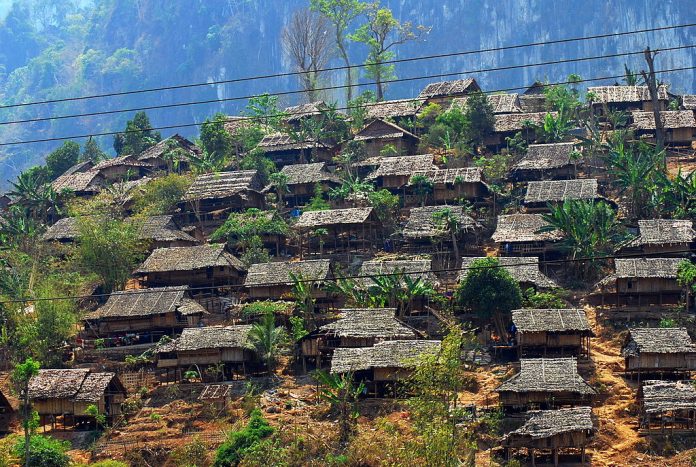Recent reports indicate that Thailand has “repatriated” an estimated 35,000 Burmese migrants nationwide since July. Burmese Muslims are among those who have faced increased difficulty in meeting the current registration requirements in Thailand.
The Burma Human Rights Network (BHRN) is deeply concerned by on-going arrests and deportations of undocumented migrant workers in Thailand, to which Burmese Muslims are particularly vulnerable.
Nearly 80% of Burmese Muslims BHRN spoke had never been issued citizenship documents in Burma, making it nearly impossible to obtain legal documentation in Thailand, where many have lived and worked for decades.
Revisiting these communities in late October, Burmese Muslims revealed to BHRN that circumstances have further deteriorated, with employers laying off workers unable to meet Thailand’s migrant identification requirements. Former factory and construction workers are now resorting to supporting their families by collecting and selling recyclable trash.
“All of our problems are a consequence of not having documents—it is our core problem. If we had documentation, we could meet our families’ needs,” one 55-year-old Burmese Muslim man from Pegu, but now living on the Thai-Burma border, told BHRN. “I cannot sleep well, because I don’t know when they will come to arrest us,” he said.
Migrant workers said that when deportations by the Thai authorities occur, they are now handed directly to Burmese immigration officials and told to remain within the country. However, because many do not have proof of citizenship in Burma, employment and residence in their homeland remains a significant challenge, in addition to widespread discrimination.
“Who will hire us? We are Muslim,” said one mother of six from Mon State, when asked why she does not return to Burma amid the current crackdowns in Thailand.
BHRN’s executive director Kyaw Win said, “statutes like the 1982 Citizenship Law conflate ethnicity with citizenship and reinforce the perception of Muslims as foreign in Burma. The country must adopt a citizenship scheme based on human rights norms.”
Until this is realised, BHRN strongly urges the Thai authorities not to deport migrant workers back to the same circumstances in Burma that forced them to leave. BHRN also recommends that Thailand provide temporary work permits to those migrants already in the country, and to partner with existing rights groups to determine a system of documentation that would allow migrant workers to live and work with dignity in the Kingdom.

